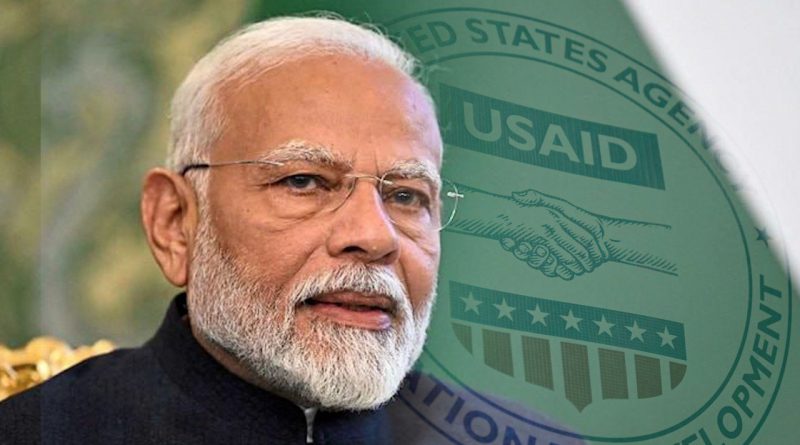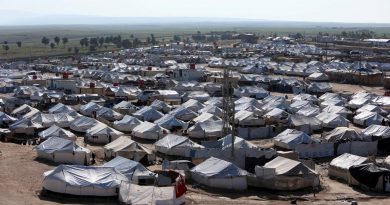USAID wanted Indian PM Modi Out: The Deep State’s Sinister Agenda
USAID has been accused of funding organizations and individuals that are vocal critics of Modi’s administration, furthering an agenda that weakens India’s independent policy-making.
In a bombshell revelation, reports have surfaced suggesting that USAID, the United States Agency for International Development, has been more than just a development agency in India—it has allegedly been working to undermine Prime Minister Narendra Modi’s government. Operating under the shadowy influence of the Deep State, USAID is accused of pushing a left-leaning agenda, funding Modi’s critics, and subtly shaping public sentiment to serve American geopolitical interests.
USAID’s Heavy-Handed Political Interference
BJP politician Savio Rodrigues has blown the whistle on what he describes as blatant political interference. Speaking to Sputnik India, Rodrigues revealed how USAID’s initiatives, supposedly aimed at increasing voter participation, were actually an attempt to influence Indian elections.

“DOGE’s findings expose USAID’s attempt to influence Indian voters by masquerading as an initiative to boost voter turnout,” Rodrigues stated. The implication is alarming—foreign agencies meddling in India’s democratic process under the convenient guise of development assistance.
Deep State’s Left-Wing Agenda in India
The term “Deep State” refers to an intricate network of bureaucrats, intelligence officers, and corporate lobbyists who manipulate global events to align with their ideological and economic objectives. India, under Modi’s leadership, has proven to be a thorn in their plans.
With a government that champions nationalism and self-reliance, India is seen as a disruption to the traditional Western grip on global politics. USAID, allegedly influenced by these hidden power structures, has been accused of funding organizations and individuals that are vocal critics of Modi’s administration, furthering an agenda that weakens India’s independent policy-making.
For decades, the U.S. has used foreign aid agencies to exert influence over developing nations, and India is no exception. What appears to be assistance often comes with strings attached—ensuring that opposition voices are emboldened and narratives against nationalist leaders like Modi gain traction in both domestic and international forums.
India: The Deep State’s Political and Economic Laboratory
With its vast population and growing economic influence, India has been turned into a testing ground for external manipulation. Intelligence experts argue that USAID and affiliated entities have used research, social media influence, and targeted funding to sway public opinion in ways that benefit U.S. corporate and political interests.
Many believe that social media discourse, think-tank reports, and activism have been subtly guided by USAID-linked organizations. While these efforts are often disguised as democracy-building or advocacy for human rights, they serve a larger goal—keeping India aligned with Western influence and corporate profiteering.
U.S. Corporations: The Biggest Beneficiaries
John Perkins, bestselling author of Confessions of an Economic Hitman, has extensively exposed how institutions like USAID ultimately work in favor of American businesses. Speaking to Sputnik India, Perkins explained how foreign aid, rather than being an altruistic endeavor, primarily serves U.S. corporate giants.
“Foreign aid funds and loans intended for developing nations, channeled through U.S. agencies, are ultimately designed to benefit American corporations,” Perkins noted.
By ensuring that aid money is spent on projects where American contractors and multinational firms dominate, these agencies create long-term economic dependence. India, with its booming economy, has been a prime target for such predatory tactics, further strengthening foreign control over its financial landscape.
Economic Hitmen Are in India
John Perkins, who once worked as an “economic hitman,” has detailed the methods used to keep developing nations indebted and subservient to Western economic policies.
“I can’t imagine economic hitmen, like I once was, not operating in countries like India and Bangladesh,” Perkins admitted, underscoring the likelihood that India remains a battleground for covert financial coercion.

The strategy is clear—trap countries in debt through high-interest loans, tie infrastructure projects to American firms, and use policy advisory roles to ensure that economic decisions favor U.S. interests. These tactics have long been used in Latin America, Africa, and Asia, and India appears to be no exception.
India’s Counteroffensive and the Path Forward
Under Modi’s leadership, India has aggressively pushed back against foreign interference. The government has tightened regulations on foreign-funded NGOs, scrutinized international grants, and restricted organizations that appear to serve external interests over India’s own development goals.
While these steps have helped in reclaiming India’s sovereignty, revelations about USAID’s alleged activities prove that the challenge is far from over. The country must remain vigilant against external forces that attempt to shape its political narrative and economic policies to their advantage.
The accusations against USAID paint a troubling picture of how international aid organizations can be weaponized to serve hidden agendas. What is often presented as benevolence or humanitarian work is, in reality, a sophisticated strategy of influence and control.
As India rises as a global power, it must fortify itself against such covert interventions. The battle is not just about development aid—it’s about safeguarding national sovereignty, ensuring fair democratic processes, and keeping the country’s economic destiny firmly in Indian hands.



